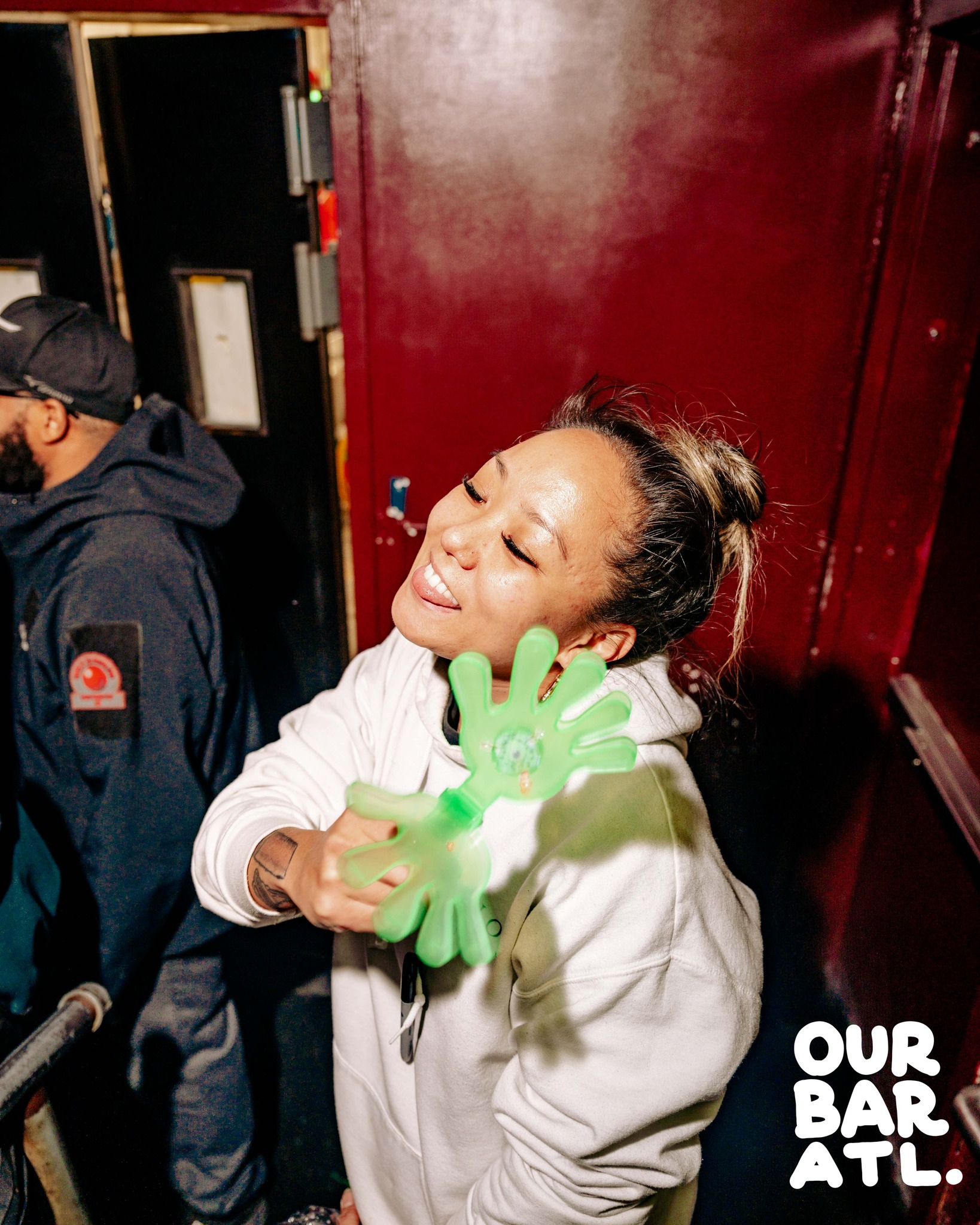We were lucky to catch up with Sarah Oak Kim recently and have shared our conversation below.
Alright, Sarah Oak thanks for taking the time to share your stories and insights with us today. Can you talk to us about serving the underserved.
It didn’t start off this way. We thought we’d be just another bar on Edgewood, like many before us. We all got our start at Department Store back in 2015, right down the street and assumed this would go the same way. But just 16 days after Our Bar ATL opened its doors, the pandemic hit, forcing a mandatory shutdown. Suddenly, Edgewood became a ghost town. With only two weeks of sales under our belt, we were devastated.
The only people still out were members of the displaced community—those who had long relied on the busy nights and foot traffic to survive. What was once “Can I get a dollar?” became, “Do you have any water?”
Chef Dee (Dez Luecke) and his wife, Denitra, stepped up and asked to use Our Bar as a hub. It started with 100 peanut butter and jelly sandwiches a day. Out-of-work staff showed up—masked, gloved, and standing six feet apart—to pack and distribute brown bag lunches. We did that every day for a year.
When winter arrived, we knew we had to do more. By then, we knew every name, every food allergy, sandwich preference, and backstory. On Thanksgiving Eve, we went all in. We rented shower trailers, collected thousands of clothing donations, and invited local barbers to give haircuts. Our pop-up chefs cooked a holiday feast, liquor brands dropped off cases for punch, DJs and musicians put on a live show, and our resident hosts came to run a bingo game. We gave out MARTA cards, Newports, scratch-offs, and twist off bottles as prizes lol ( I couldn’t tell you who loved it more, us or them, but a time was had)
We called it Hug the Block, and we’ve done it every year since. (you can watch the recaps on our YouTube page)
That’s just one of the many ways we serve our neighbors in the Old Fourth Ward. Opening a business on this historic land, where Dr. King himself once walked, is not lost on us. The question we ask ourselves is always: What would Dr. King do? Would he approve of our intentions? Would he be happy to have us in his neighborhood?
Yes, we’re a bar. But we’ve become so much more. Whether you’re a patron or a familiar face, if we can help you, we will. Every single time.
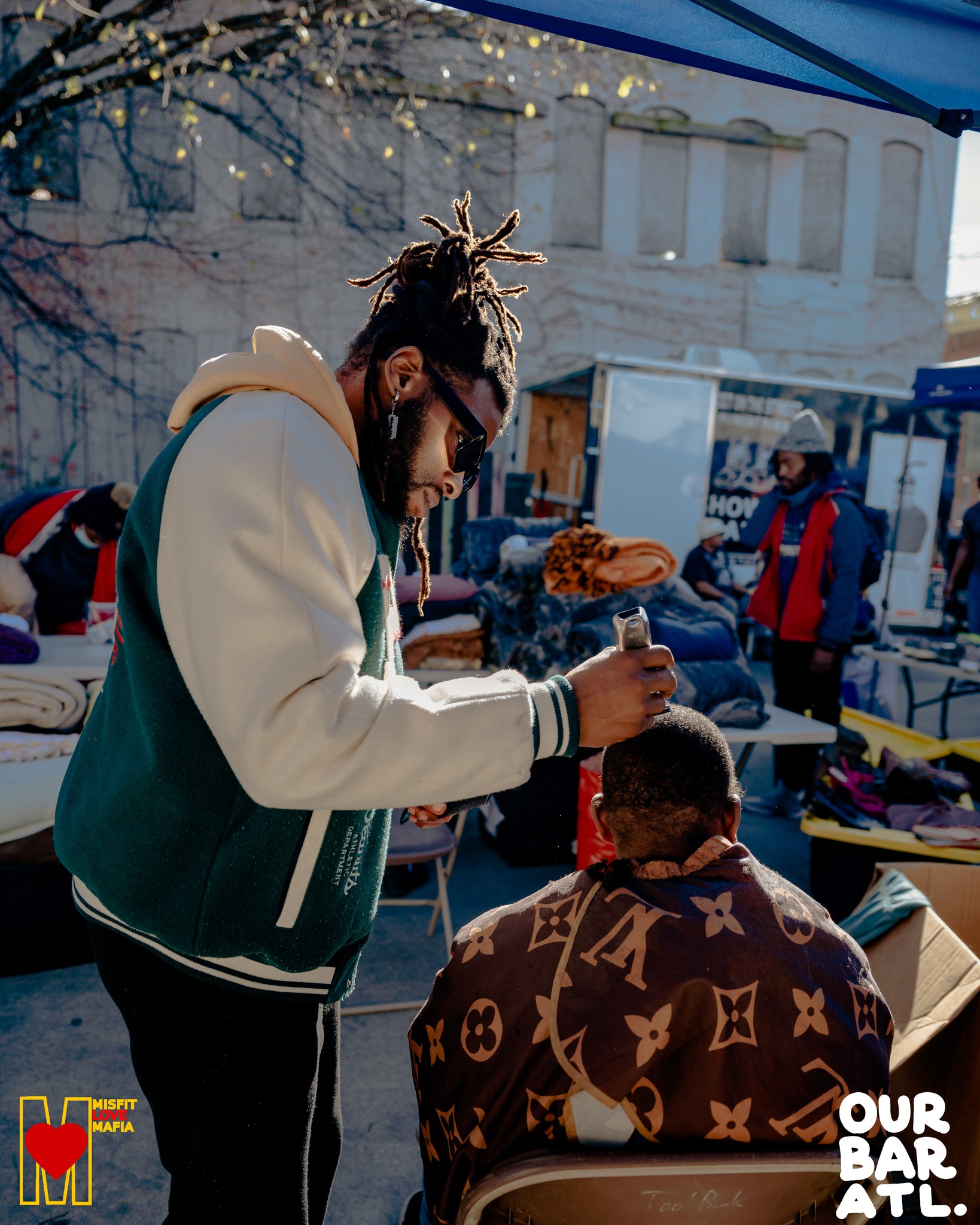
Great, appreciate you sharing that with us. Before we ask you to share more of your insights, can you take a moment to introduce yourself and how you got to where you are today to our readers.
I’m a bartender at heart with the mind of a producer. I got my start bartending at Atlanta’s legendary strip clubs when I was just 18. It was a front-row seat to “old Atlanta” at its peak—meeting celebrity clientele and soaking in the electric culture that shaped the city. I dropped out of college to chase cash and freedom, taking my earnings and moving to Las Vegas to pursue a professional poker career. It was a bold move, but within two years, I was back home with my tail tucked between my legs, carrying lessons I didn’t yet know I’d need.
Back in Atlanta, Follies was at its height. There was—and still is—”No Place Like Follies.” They hired me to bartend and run the door, and for a while, Follies became my second home. From there, I joined Department Store on Edgewood, moving from bartender to GM, handling booking and programming. That’s where I saw some of Atlanta’s biggest artists perform before they became household names—Bankroll Fresh, Lil Uzi, Playboi Carti, Father, Abra, Post Malone, 21 Savage, Makonnen, OG Maco, Royce Rizzy, Kap G, Trouble, and so many more.
The same crew that worked with me at Department Store followed me when I took my first job on set as a drone assistant, thanks to a guy I was dating who was one of the only drone operators in Atlanta at the time. That’s where I fell in love with production—the high-pressure environment, juggling a million moving parts, and making magic happen. Motion Family took me in, and after a few years, I became their Line Producer. My mentor, David Ka, taught me everything—real budgets, real taxes, and real business. Suddenly, I was no longer just hustling for tips. I was managing entire productions with big stakes and bigger responsibilities.
One of my most challenging and rewarding projects was producing Trouble’s short film, Edgewood, after catching the eye of Derek Schklar, Trouble’s manager at the time. It was the biggest budget I had ever worked on and some of the longest, coldest days I’ve ever spent on set. From there, I joined Trouble’s management team, hitting the road for multiple tours and radio runs over the next four years.
Then came the next chapter—opening Our Bar ATL. My friends and I pooled our resources and found the perfect spot on Edgewood. It felt like everything had come full circle. But just as the bar was taking off, Trouble passed away, and it broke me in ways I wasn’t prepared for. Suddenly, the hustle of set life and the chaos of the road didn’t feel the same.
These days, I’m content to sit still and let the fruits of my labor catch up with me. I’m not sure what’s next, but I have a feeling it’ll be calmer—less about busy schedules, and more about heart and community. Maybe something softer, something that feeds the soul.
We’ll see.
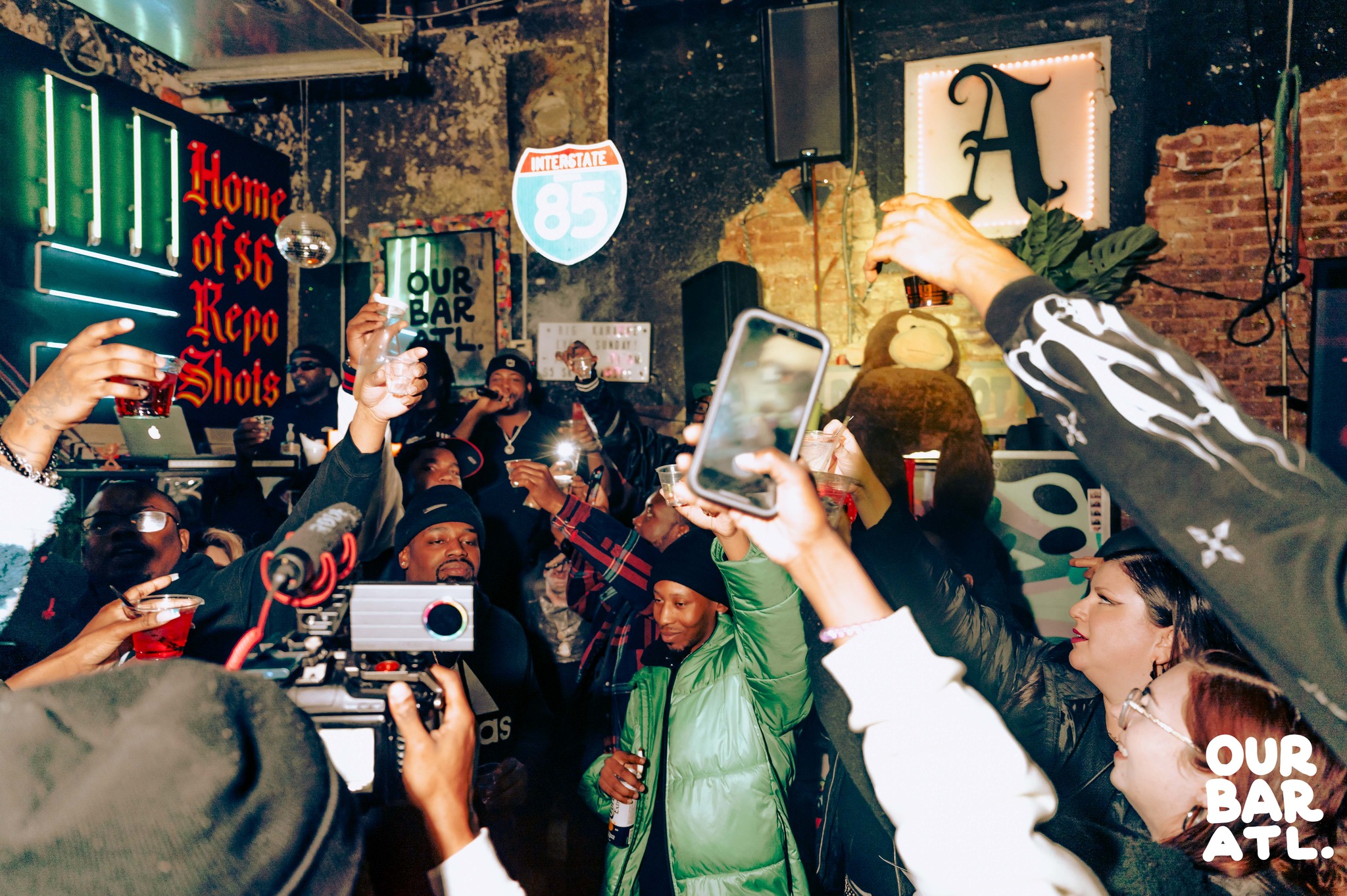
Can you tell us the story behind how you met your business partner?
Omg, where do I even begin?
Justin DeLeon—the calmest, most level-headed Leo to ever exist.
We met randomly when we co-founded a tech startup called Creative Loot with two others. The creator of the technology went to college with Justin at Rutgers and somehow convinced him to move to Atlanta for this wild idea. I was brought on for marketing, Justin handled operations, Brian was on finances, and Jeremy handled the tech.
We were ahead of our time. Creative Loot was at the forefront of social commerce, well before Facebook storefronts and marketplaces existed. We had a technology that allowed users to embed a store link directly within a Facebook feed. The link would act like a video, but instead of playing content, it displayed a fully functional storefront where users could browse and buy products without ever leaving the feed.
Justin and I naturally paired up. We were the youngest, the most inexperienced in corporate America, and found ourselves doing the majority of the groundwork. We spent endless hours in our first office space on the 18th floor of the green Kryptonite building in Buckhead. We really thought we were about to live the dream.
Those days were filled with cold-calling clothing brands, jewelry stores, anyone with a tangible product to sell, scheduling meetings, and giving demos. That grind taught us everything about each other. He didn’t hate me (which is a big win in itself), and even though I’m always more aggressive and emotional, I found so much comfort in his calmness and unwavering confidence. I tell him all the time, “You’re honest to a fault—just bend the truth if it helps you!” But he never does. He’s patient, realistic, and steady, the kind of person you never realize you need until they’re in your life.
Long story short, we were offered $1.3 million for our technology. We declined. A few months later, Facebook launched the exact same technology, making us obsolete overnight.
Justin, too proud to return to New Jersey, decided to thug it out in Atlanta. At one point, he had five part-time jobs at once. Eventually, I got another bartending gig at a strip club and made him a fake resume so he could be my barback. We fibbed our way through a lot, but he always rose to the occasion. Then came Department Store, where he became an elite barback, and I leaned on him just as much as before.
Carrying cash and staying safe on Edgewood sparked his affinity for firearms. With his engineering background, it was only natural that he’d want to build them. Fast-forward to today—he’s not just my business partner and co-owner of Our Bar ATL, he’s one of the most important people in my life. There would be no me without him. There would be no Our Bar.
He’s my best friend and my soundboard. I’m predictable and emotional, and I’m sure he’s kept me out of jail more times than I’ll ever know. He gives a whole new meaning to “best man.”
If everything burned to the ground tomorrow, I know we could rebuild it tenfold as long as he’s by my side.
Now, as he shifts his focus to AK builds and customizations, I’m excited to support his dreams, just as he’s supported all of mine. (Even though I’m almost positive he doesn’t want me anywhere near his firearms.)
Justin is one of the best parts of the life I have today, and I can’t wait to see where his next chapter takes him.
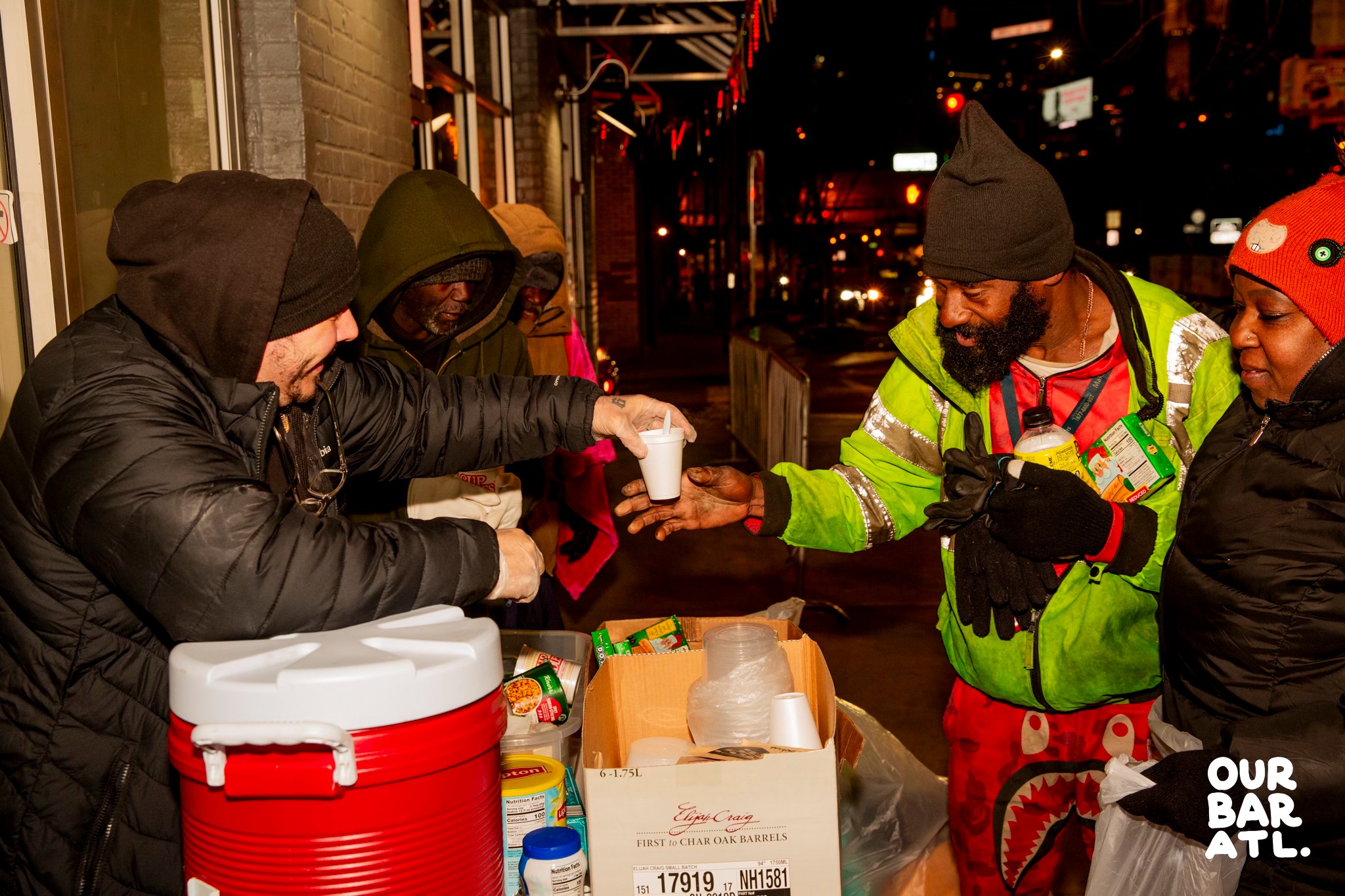
Can you tell us about a time you’ve had to pivot?
If anyone has ever applied for a liquor license in the City of Atlanta, they’ll tell you it’s one of the most tedious and frustrating processes imaginable—and they wouldn’t be wrong.
We couldn’t afford an expeditor, which can cost tens of thousands of dollars, so we did it ourselves. At the time, we thought that was the hardest, most drawn-out part of opening a bar. We were soon proven wrong.
During the licensing process, we were asked to explain our food menu and concept. Since we had built a full kitchen, we landed on the idea of seasonal small plates—a rotating menu of small bites that would live in hot food vending machines we bought from Denmark. These vending machines were meant to be a nod to the lack of street food culture in Atlanta—a quick, convenient option for our late-night, tipsy patrons.
Before we could even formally announce the first-ever hot food vending machines in Georgia, the pandemic hit. We weren’t prepared to run a kitchen—let alone keep our bar afloat during a global shutdown.
So what the hell do we do now?
With the curfews in full swing, not only were we out of work (and customers), but so were many of our friends and fellow industry professionals. Most of them had far more kitchen experience than we did, so we made a few calls:
“Hey, I know you’re out of work. Want to do a two-day pop-up? Curbside pickup only, 11 a.m. to 8 p.m. You can just throw us something for utilities.”
The response was instant. Our out-of-work chefs jumped at the opportunity.
Because it was our first year of business and we had filed as a restaurant, we were deemed essential and allowed to stay open under severe restrictions. In the two years that followed, we hosted 350+ pop-ups with 120 different chefs and menus in Atlanta.
This was never part of our plan, but it became something we took great pride in. It helped us break even with our overhead costs and, more importantly, gave our friends the chance to cook what they loved and showcase their talents during one of the most devastating times for the service industry.
The outpouring of support was huge. People loved what we were doing to help our industry mates and support their favorite local chefs. We made a public health promise to our community—acknowledging that while we were staying open, we were also taking the most serious steps to keep our chefs, customers, and food safe. The policies we implemented caught the attention of the media and sparked a movement that many businesses and associations followed. Our instinct was right: reassure people, take this seriously, and let them know we’re not taking risks lightly.
Our chefs were booming, and our COVID-19 precautions were down to a science.
Coming from a strictly bartending background, I had very little back-of-house experience. But what I learned quickly is that experience means nothing when you’re open to pivoting.
We started with a strong plan for how our bar would run, but it wasn’t hard for us to rewrite that plan when the opportunity to help others presented itself.
One of those chefs was Trey Da Chef, who continued doing pop-ups at Our Bar ATL for years. Now, in year five, Trey runs our kitchen full-time as our long-term resident chef. His personality and menus fit perfectly with our bar, far exceeding our own expectations of what we thought our kitchen would be. We were Trey’s first and last pop-up after he moved to Atlanta, and now he’s a viral Chicago chef that people travel to see and write about.
Pivoting is never a bad thing. If your heart says to do it, follow it. People don’t buy what you do—they buy why you do it. Just make sure that why sits right within your soul.
I’m not saying I miss those COVID times, but the way we all jumped into action, ready for anything, will always stick with me. Hopefully, it’ll never happen again, but I’m glad that’s how we started this journey. It put the liquor license headache to shame. At this point, I’d be surprised if there’s anything life could throw at us that we couldn’t handle.
Pivoting is now one of the many things that what we do best.
Contact Info:
- Website: https://www.ourbaratl.com
- Instagram: https://www.instagram.com/ourbaratl
- Facebook: https://www.facebook.com/ourbaratl
- Linkedin: https://www.linkedin.com/in/sarahoakkim
- Youtube: https://www.youtube.com/ourbaratl
- Other: tik tok : www.tiktok.com/ourbaratl
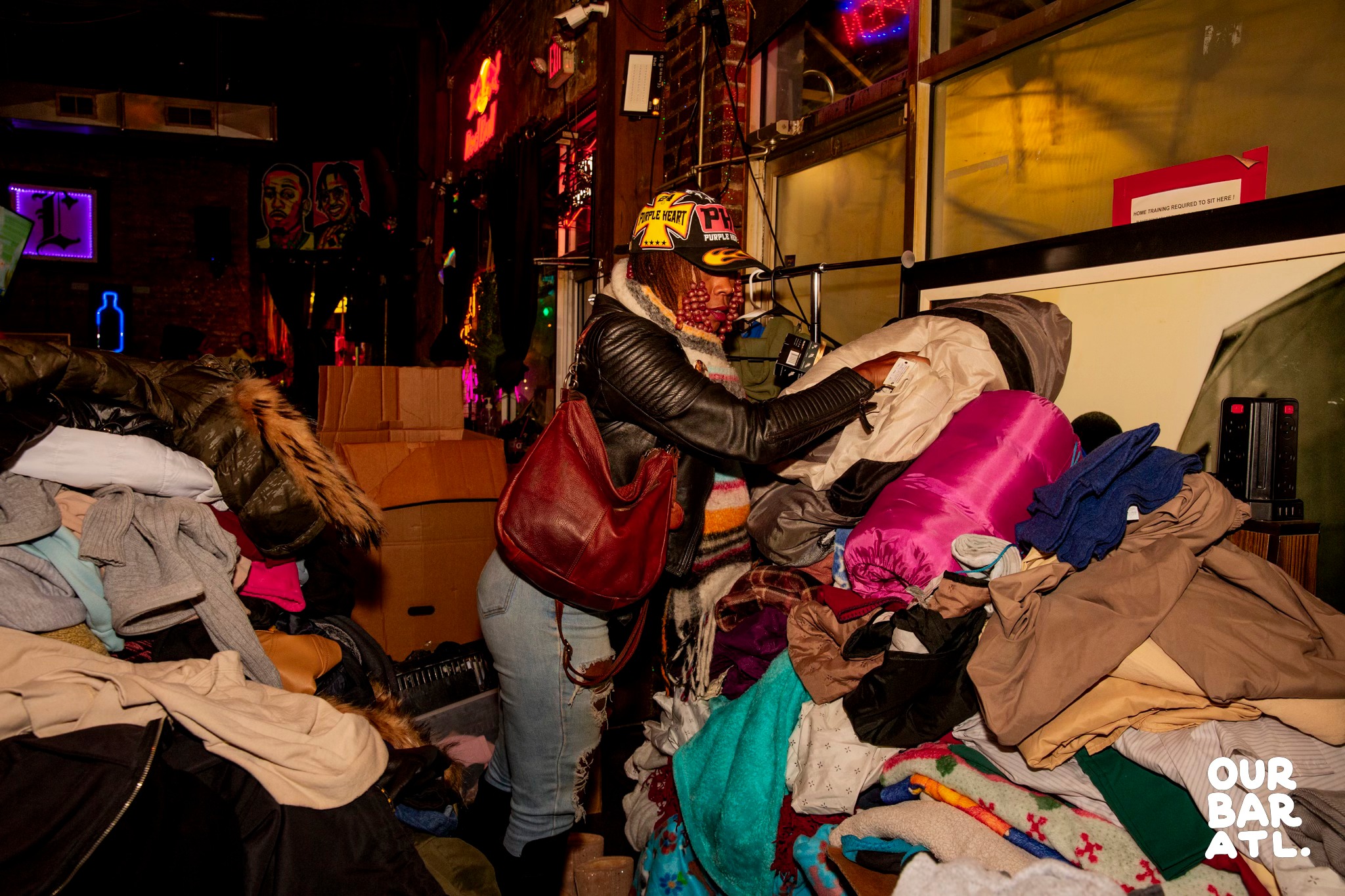
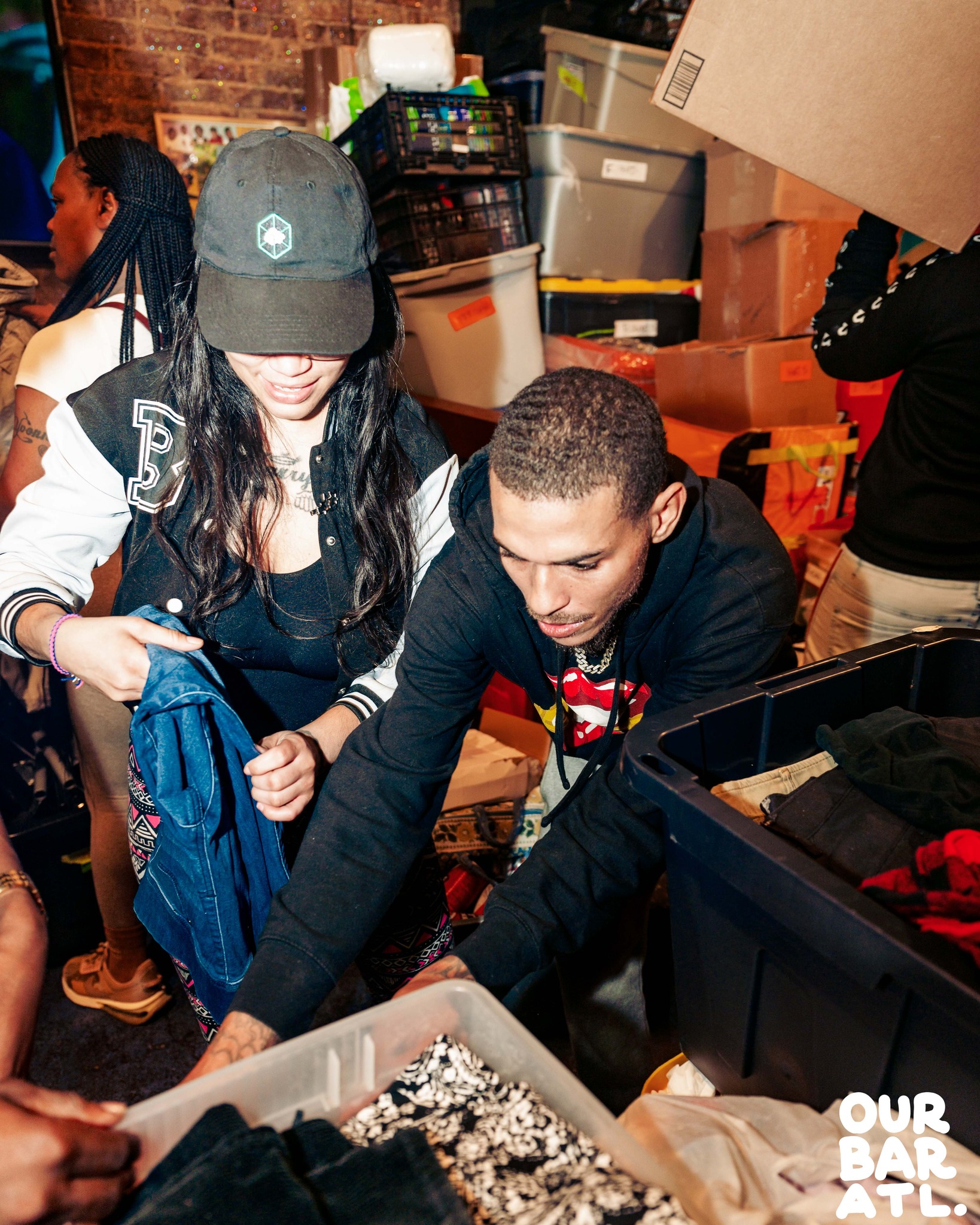
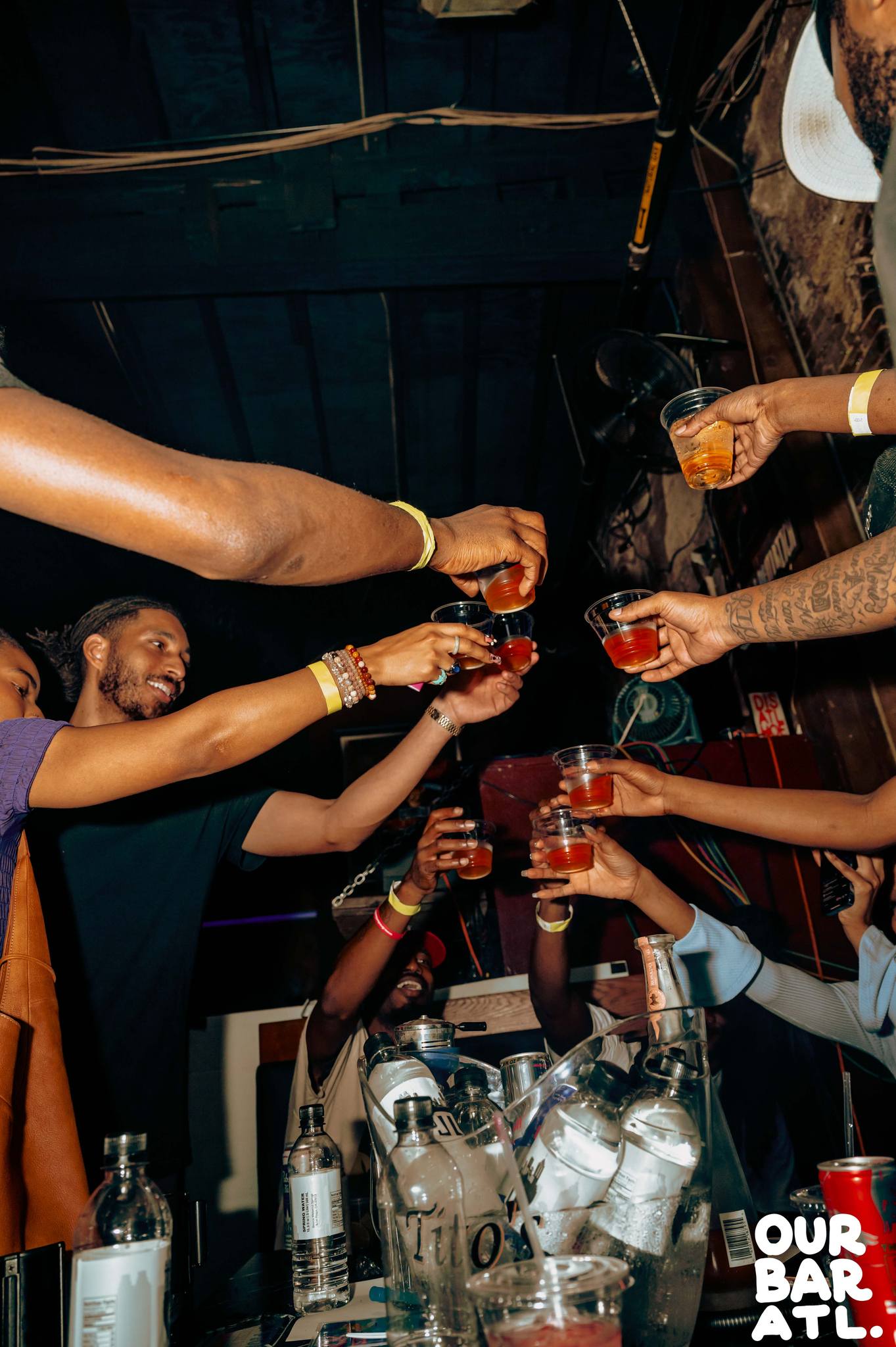
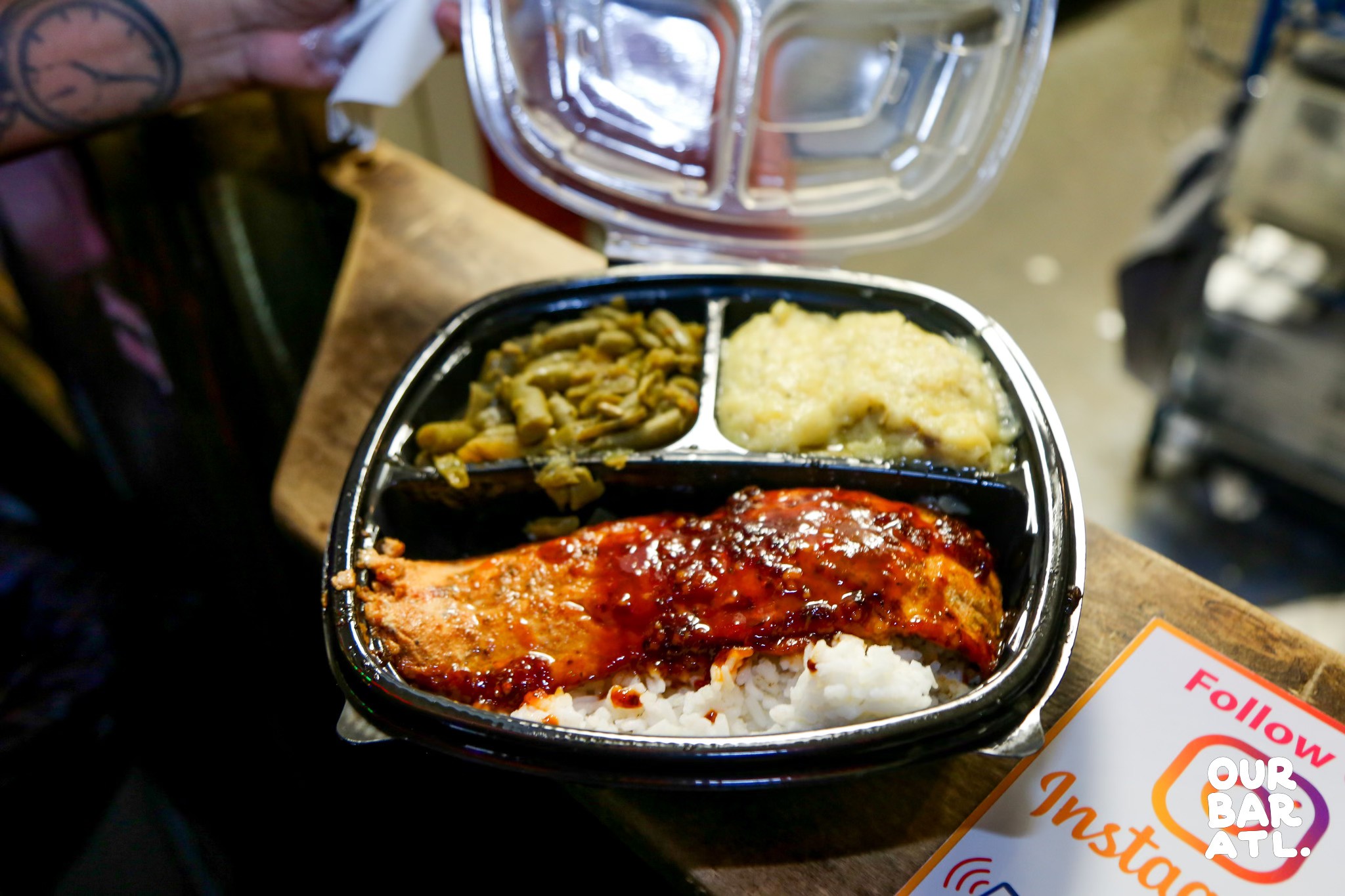
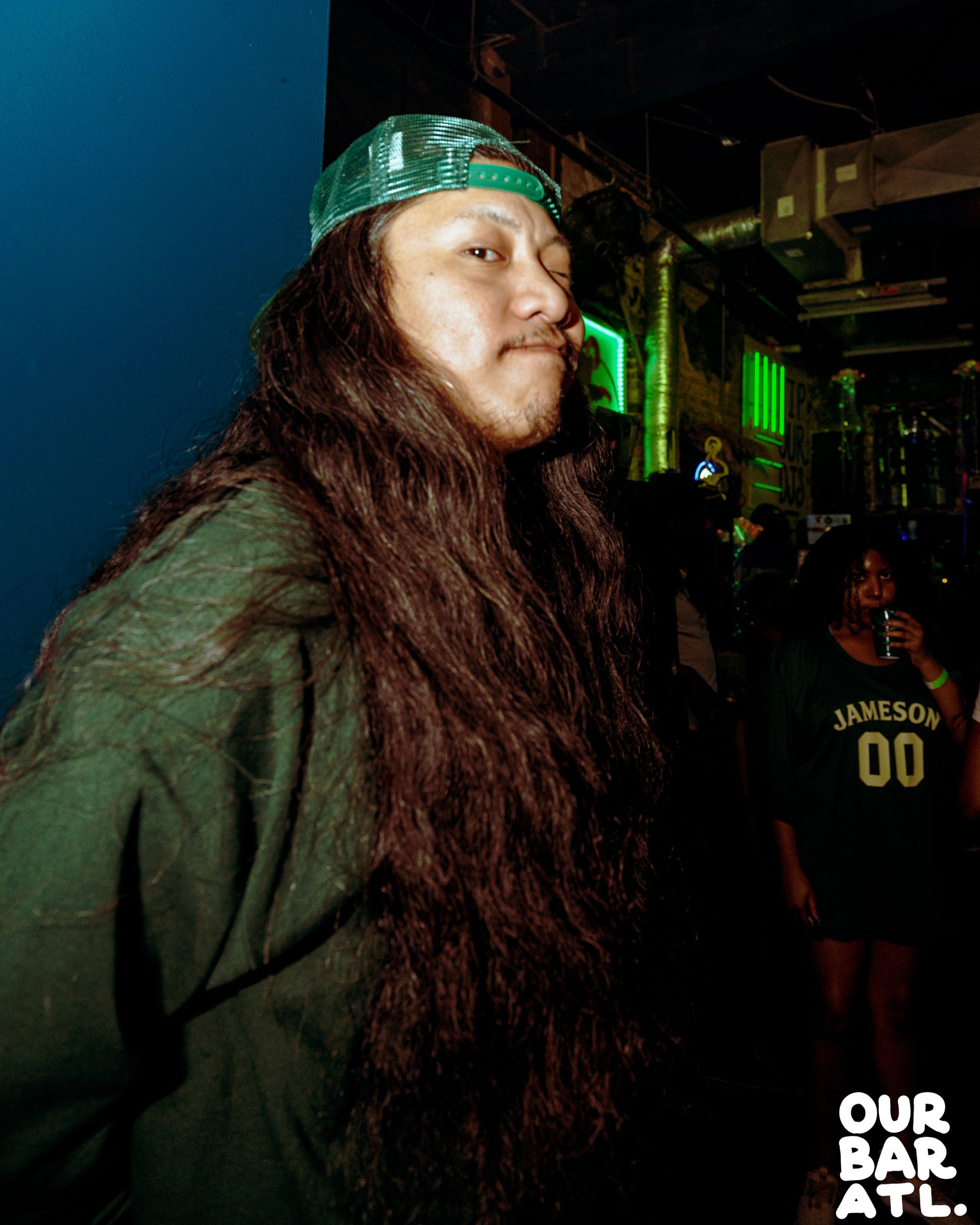
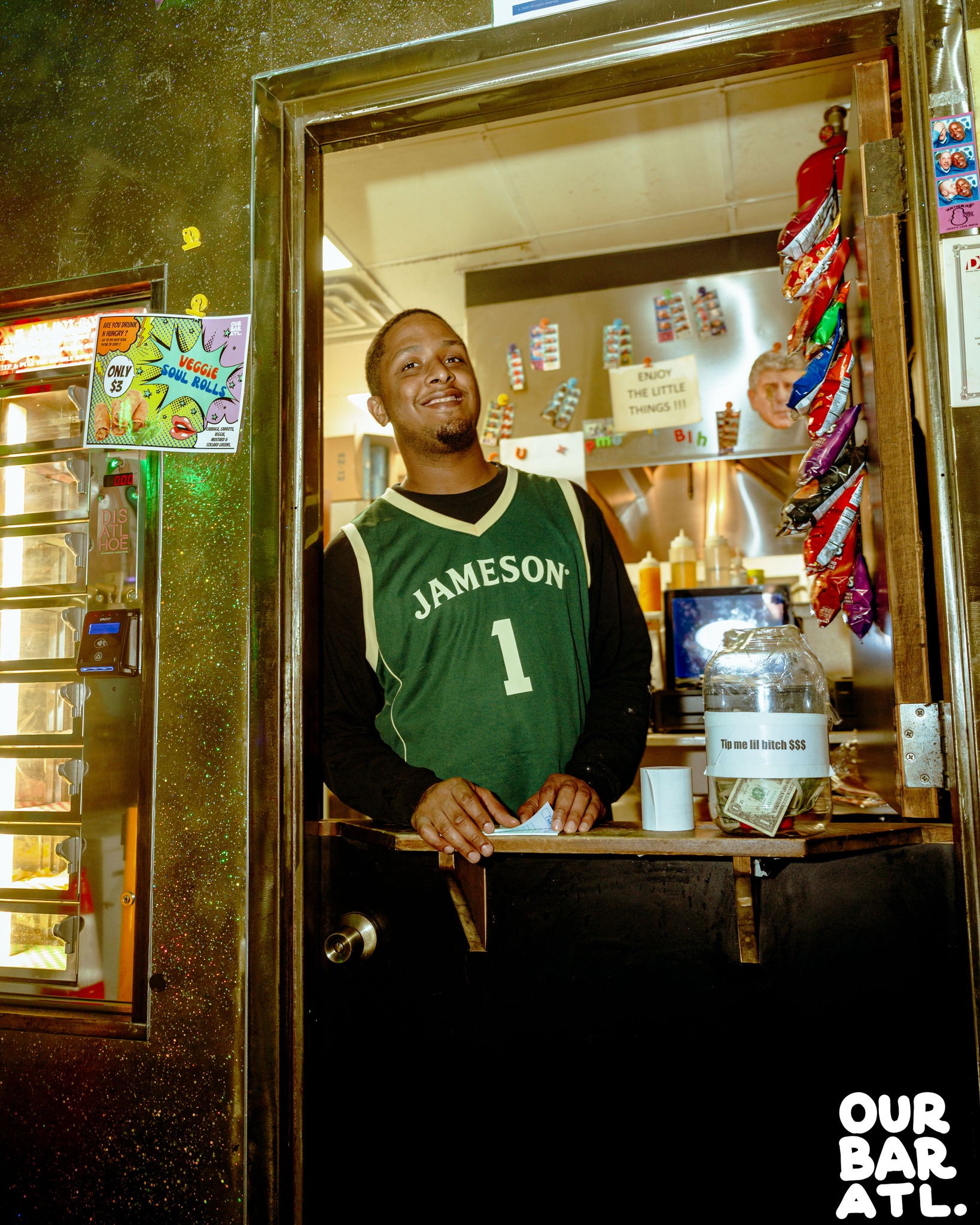
Image Credits
Photos by: @anitraisler5


